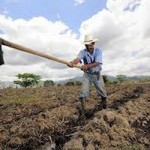Like Earth Overshoot Day, Buy Nothing Day is a time for reflection.
by Noel Keough
On November 1, not more than 12 hours after the Halloween festivities wrapped up, with bags of sugary treats in the closet and never-to-be-worn-again costumes shoved into the garbage bin, shopping malls across the city rolled out Christmas music, displays and discounts. In the past, we marked the passage of time by natural phenomena — the seasons, phases of the moon and bird migrations. Now we can set our calendars by the orgies of consumerism.
It’s not my point to deprive our kids of the joys of trick or treating or the magic of Christmas morning, but I want to take issue with the diminished and destructive vision of a hyper-consumerist culture we adults offer them.
“Globalization allows goods to be produced under circumstances that consumers would refuse to tolerate in their own community.”– UN Report
August 22 of this year marked what has come to be known as Earth Overshoot Day. In eight months, humanity exhausted the Earth’s resource budget for the year. Back in 1992 we made it all the way to October 22nd before overshoot. We are now well into overdraft, maintaining our collective lifestyles by harvesting more fish than the sea can replenish, cutting trees faster than the forests grow them, and pumping more carbon into the skies than the Earth can assimilate back into the biosphere.
While this is starting to cause noticeable discomfort in our country, what it is doing to our neighbours in the global village is unconscionable. In September, the 20 countries most vulnerable to climate change released the Climate Vulnerability Monitor: A Guide to the Cold Calculus of a Hot Planet. In a plea to the most affluent countries, the report decries what it calls “fundamental injustices that simply cannot go unaddressed.”
Despite having contributed negligibly to climate change, the least developed countries — places like Gabon, the Central Africa Republic, Mozambique, Somalia, Afghanistan and Vanuatu — will suffer the most. Over 90 per cent of the mortality forecast to result from climate change and fossil fuel combustion will occur in developing countries. Already, the global toll is almost five million deaths annually via hunger, malaria, meningitis, air pollution and cancer, along with $1.2 trillion in economic losses.
Over 90 per cent of the mortality forecast to result from climate change and fossil fuel combustion will occur in developing countries.
And “while some countries are committed to change and making progress, there is still a lack of conviction among the governments of too many industrialized and developing nations,” reads the report. Sadly, our country is the poster child for the lack-of-conviction club.
Earlier this year, the 500-page UN Environment Programme annual Global Environment Outlook stated that growing population, glaring inequality and a precarious environmental base were cause for profound concern.
The frank assessment of the report was that “Globalization allows goods to be produced under circumstances that consumers would refuse to tolerate in their own community, and permits waste to be exported out of sight, enabling people to ignore both its magnitude and its impacts.”
The collective tragedy is that the evidence suggests that hyper-consumption, fuelled by fossil fuel combustion and unsustainable resource extraction, is not even improving our own well-being. In fact, it’s quite the opposite.
While GDP in the US and UK has tripled and doubled respectively since 1960, measures of happiness have remained essentially unchanged. In global surveys, Tanzanians and Vietnamese report higher levels of happiness than Canadians. Colombians and Guatemalans appear to be more satisfied with their lives than we are.
Tanzanians and Vietnamese report higher levels of happiness than Canadians.
The bottom line is that once the basics of life are taken care of, it is the quality of human relationships that determines happiness and life satisfaction, not material affluence. Upon reflection, most people would acknowledge this to be true, which is why advertisers spend around $500 billion per year to convince us otherwise.
So the lifestyle we sell to our kids and ourselves is making the Earth uninhabitable, shortchanging the majority of people on the planet and all future generations, without any appreciable improvement in well-being, contentment or happiness.
This realization is rather overwhelming, but there is something small, yet meaningful, that you can do to focus attention on hyper-consumption — Buy Nothing Day. As its promoters suggest, “relax and do nothing for the economy and for yourself — at least for a single day.”
Buying absolutely nothing for 24 hours would be a heroic act, but you can experiment.
So on November 23 and 24, take time out to think about how much is enough. Buying absolutely nothing for 24 hours would be a heroic act, but you can experiment. Refuse to even stroll in a shopping mall. Buy only locally grown food (say within 500 kilometres) from locally owned businesses (see the REAP website for inspiration). Sell your car and join the Calgary Carshare Co-op or car2go. Talk to friends and neighbours about how to redirect your passion and energy toward life-affirming non-material pursuits.
And take consolation in the words of Kenyan Nobel laureate Wangari Maathai: “There is a huge amount to be done if we are to reach a state of sustainability. Do not despair, do not be weighed down by it. All I ask of you is that you go home and do what you can.”





